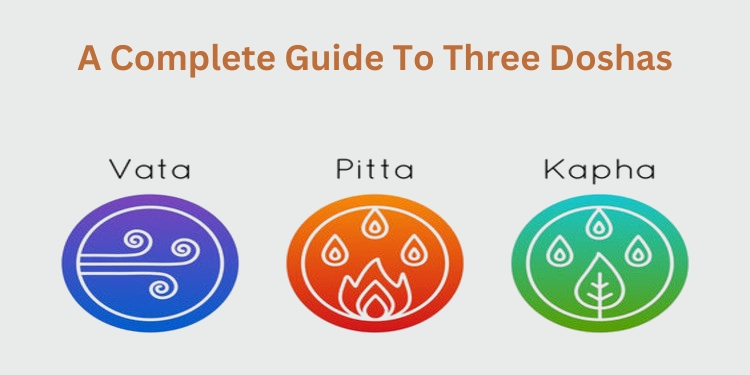Diabetes is a chronic disease and the most common non-infectious pathophysiological disease affecting millions of individuals. Diabetes is one of the diseases addressed by Ayurveda in the sphere of comprehensive treatment and cure that contain valuable ideas and treatment techniques. Instead of simply regulating blood sugar levels, Ayurveda as a complete mind-body system of healing seeks to rectify those imbalances. In this blog, you will discover Ayurvedic treatments, alternatives, and changes in diet and lifestyle that can help people with diabetes live healthy lives.
In Ayurveda, diabetes is known as Madhumeha, because it is associated with the excess of Kapha dosha, and can also be accompanied by the decreased Agni. In Ayurveda, the buildup of Kapha promotes a change in insulin in the body and results in glucose, which increases diabetes in the body. This way of considering health and illness is an Ayurvedic way of embracing therapy and is oriented toward balancing the human body and enhancing natural human recovery.
Actually, Ayurveda distinguishes several types of diabetes that are often connected with the disturbed dosha and body constitution. Knowledge of these variations aids in the development of individual management plans.
Type 1 diabetes, or juvenile diabetes, is characterized by an absence of insulin. The ayurvedic solution to this condition involves remedial therapies that seek to address Vata-Kapha dosha dysfunction.
The common form of diabetes known as Type 2 develops when the body is no longer able to respond to insulin. This type is predominantly associated with Kapha dosha irregularity but could be caused by improper diet and unhealthy working habits. Amma's theraputic approach of Ayurved provides the new nutrition and herbal medicine plan along with a change in lifestyle to balance it.
There is one type of diabetes known to develop during pregnancy and it is believed to be caused by hormones. Ayurveda does not stress sudden modifications in one’s diet and carries out gradual exercise during this period to maintain the general harmony of the body.
Pre-diabetes, or borderline diabetes, serves as a warning phase. Ayurveda believes in the preventive approach of administering dietary and lifestyle changes coupled with herbal remedies to avoid the possibility of the disease graduating to full diabetes.
Ayurveda has a different way of handling a disease type like diabetes; it aims at purification, the right lifestyle, and herbal pills for maintaining blood sugar. Due to the work on domestic disturbances, Ayurvedic treatments pursue the treatment of insulin function regulation, the increase in metabolic rates, and immunological reinforcement.
Key principles include:
Panchakarma is the basic process of detoxifying, nourishing, and revitalizing the cells of the body as a therapeutic means of controlling diabetes and its symptoms.
1. Vamana (Therapeutic Emesis)
Vamana is a type of purgation, involving vomiting to eliminate the toxic buildup of Kapha which causes diabetes. The ions are that this therapy assist in the reduction of insulin resistance index and digestion in general.
2. Virechana (Purgation Therapy)
Therapeutic purging, that helps to eliminate the excess of Pitta and Kapha is known as Virechana. This procedure assists in cleaning the liver, pancreas, and other components of the digestion system that are involved in blood glucose control.
3. Basti (Medicated Enema)
According to the principle of Basti therapy, Basti therapy aims at the balance of the Vata by prescribing the medicated enema. This method helps to benefit the lower bowel, supports the metabolism, and can prevent diabetic complications for the nervous and circulatory systems.
A number of Ayurveda herbs have the potential to control diabetes with some effects such as hypoglycemic, hypo-insulinemic, and Pancr[e]ato-protective activities.
Common Herbs for Diabetes in Ayurveda
Besides using herbs, Ayurveda uses certain prepared products that help in managing blood sugar, balancing the three doshas and having a healthy effect.
Ayurvedic treatment for diabetes involves a range of lifestyle changes, including advice on routine, dietary habits, and stress control.
Ayurvedic treatments can be made more effective by doing yoga which improves blood circulation, reduces stress, and increases insulin sensitivity, among other things. Certain poses are beneficial for those with diabetes:
Treatment for diabetes with Ayurveda includes a multi-faceted approach that takes the root cause of imbalances and focuses on symptom reduction as well as on overall well-being. Ayurveda offers an all natural approach of treatment for diabetes through Panchakarma, herbal remedies, and yoga. Ayurvedic treatment can provide significant benefits for many people, however, it is best to seek guidance from Ayurvedic and conventional medical professionals when medical management of diabetes.
Read Also:
What is diabetes according to Ayurveda?
In Ayurveda diabetes is known as Madhumeha literally 'excess blood sugar' upon which it falls, mainly due to a dysfunction of the Kapha dosha and a weak digestive fire.
Can diabetes be cured by Ayurveda?
While Ayurveda perhaps won’t actually cure diabetes but can certainly help manage symptoms, improve blood sugar levels, and reduce diabetes complications by detoxifying, using herbal treatments, and making lifestyle changes.
Can prediabetes be cured by Ayurveda?
Yes, Ayurveda can help manage prediabetes through personalized diet, lifestyle changes, and herbal remedies like fenugreek and bitter gourd, focusing on balancing blood sugar and improving overall health naturally.
What are the benefits of Panchakarma therapy for diabetes?
Panchakarma therapy facilitates detoxification, augments metabolism, suppresses Kapha dosha, and revitalizes the tissues, which may be very useful in diabetes management.
Can Ayurveda be used alongside conventional diabetes treatments?
It’s undoubtedly true that Ayurveda can be a complementary treatment method. However, talking to healthcare practitioners makes it safe and personal.

Vata Pitta and Kapha Doshas

The three doshas in Ayurveda are Vata, Pitta, and Kapha, shaping our physical, mental, and emotional health. This guide explores their traits, significance, and tips for maintaining balance naturally.
Ayurvedic Psoriasis Treatment

Ayurvedic treatment for psoriasis focuses on holistic healing through herbal remedies, detox therapies, and lifestyle changes. This natural approach helps manage symptoms, reduce flare-ups, and promote long-term skin health and overall well-being.
Contact us today and embark on a journey toward a better life. Our team is here to support you every step of the way.
